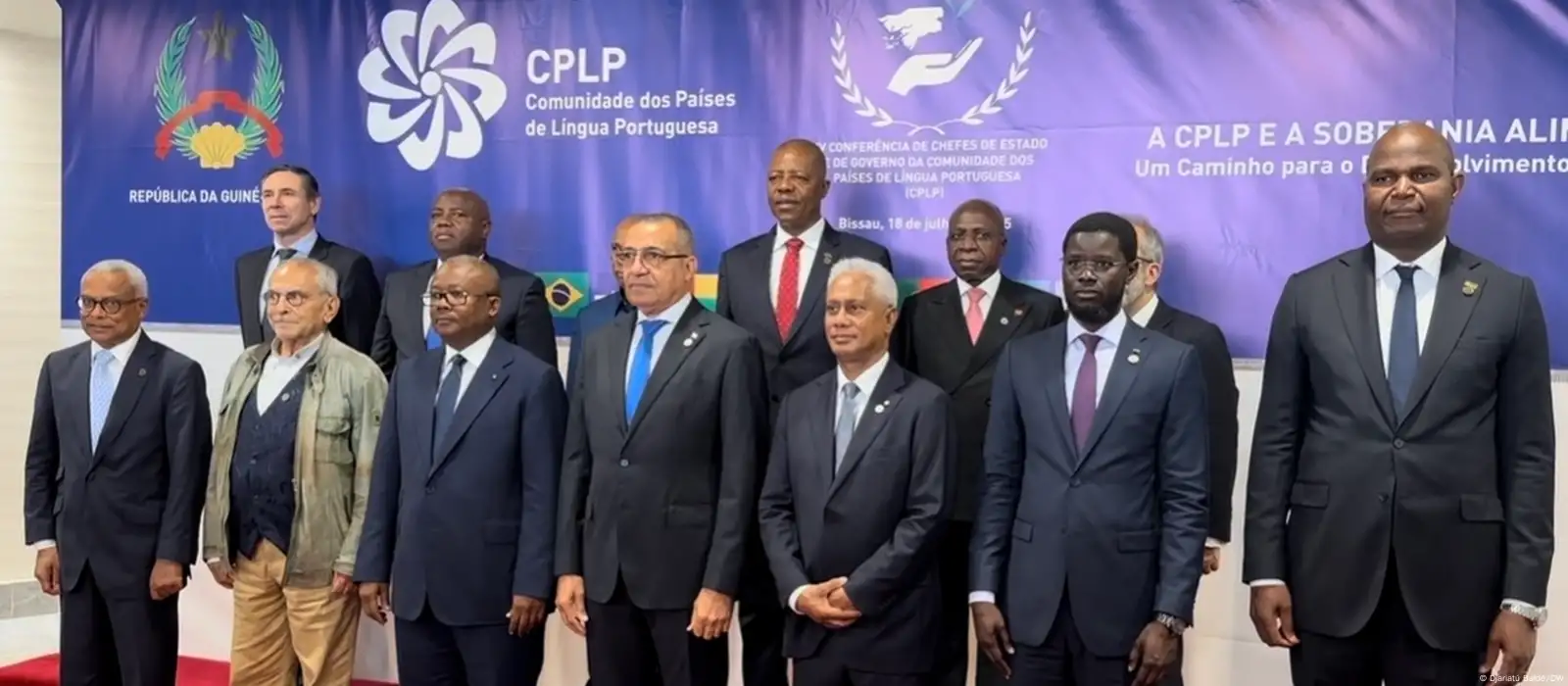Sissoco Embaló takes helm of CPLP with pledge to bolster democracy and Portuguese language

Guinea-Bissau has officially assumed the rotating presidency of the Community of Portuguese-Speaking Countries (CPLP), with President Umaro Sissoco Embaló outlining ambitious goals for the two-year mandate at the 15th CPLP Summit held in Bissau.
In his inaugural address, President Sissoco Embaló thanked fellow member states for entrusting Guinea-Bissau with the leadership of the bloc, stating that one of the key priorities would be to “deepen political and diplomatic cooperation to defend peace, democracy, and multilateralism in our respective regions.”
Embaló also emphasized the significance of language and cultural identity, identifying the “promotion of the Portuguese language as a global instrument of knowledge, identity and connection” as a strategic pillar of his presidency.
The CPLP Summit gathered leaders from several Lusophone nations, though notable absences included the Presidents of Angola, Brazil, and Portugal. Mozambique, Cape Verde, São Tomé and Príncipe, and Timor-Leste were represented at the highest level, while Portugal’s Foreign Minister, Brazil’s Secretary for Africa and the Middle East, and Angola’s Foreign Minister stood in for their respective heads of state. Equatorial Guinea was represented by its Prime Minister.
The outgoing President of São Tomé and Príncipe, Carlos Vila Nova, marked the end of his country’s term at the helm of the CPLP with a message of optimism. “It is with a spirit of confidence and optimism that, on this occasion, São Tomé and Príncipe hands over the presidency to Guinea-Bissau,” he said, highlighting his nation’s commitment to the founding principles of the organization.
Food security dominated the agenda of the Bissau summit, along with discussions on the CPLP mobility agreement and efforts to enhance economic cooperation. However, topics such as electoral transparency and constitutional order were notably absent from the formal agenda.
The summit concluded with the signing of the “Bissau Agreement,” a joint commitment to deepening political dialogue and cooperation among member states. The agreement affirmed that food sovereignty should remain a prominent issue within both CPLP and broader international discussions.
In a significant leadership transition, former Angolan Minister Maria de Fátima Jardim was elected as the new Executive Secretary of the CPLP, succeeding Timorese diplomat Zacarias da Costa for a two-year term.
The summit closed without consensus on which nation will take over the CPLP presidency after Guinea-Bissau, with Brazil and Equatorial Guinea emerging as the leading contenders.
About The Author
dailymailafric
I am an avid African news observer, and an active member of Daily Mail Africa.
I’m Passionate about staying informed on diverse topics across the continent,
I actively contribute to publishing on political, economic and cultural developments in Africa.



